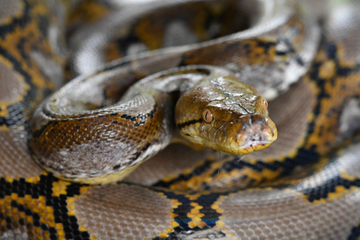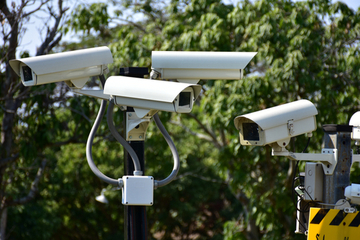
WHY YOU SHOULD HIRE AN ATTORNEY AFTER AN ANIMAL ATTACK
In the state of Florida, you and your family could encounter any of several types of potentially dangerous animals. This includes snakes, yellow jackets, wild animals, dogs, alligators or crocodiles, and even sharks. In some cases of animal-inflicted injury, you may have the right to hire a lawyer to help you sue for any damages you suffered as a result of an injury. If the animal has an owner, that owner may be legally liable for any injuries or damages.
Dogs
According to noted dog trainer Victoria Stillwell, dogs that attack humans or other animals are products of their owner’s failure to train or control their pets. Behavior that looks playful may actually be the signals you need to know the dog is preparing to attack you or a loved one. These signals can include flattened or pricked up ears. Stressed-out dogs begin to salivate more, while others may lower to the ground and cower. That wagging tail is not necessarily a sign of a friendly or happy dog. Instead, dogs who have been too aroused or upset may wag their tails. A dog that lies down and rolls onto its back may not be asking for a belly rub. Instead, its body language is telling you to back off. Other signs can include: turning its head away, yawning, staring or becoming tense. Back away if you see a dog lift one paw from the ground. It is anticipating something bad. When a dog is about to attack, its tongue will be curved, not flat. The dog will also lift its lip slightly to display its teeth.
Snakes
Over 50 snake species can be found in Florida, six of these being poisonous. If you are not sure whether a snake you have found is poisonous or not, leave the area where you found it and do not try to interact with it. If you hear a dry rattling, you may have found a rattlesnake native to Florida. The snake has detected vibrations from your footsteps and has begun to vibrate the end of its tail. It is warning you to steer clear, because you are too close. Most snakes in Florida are not aggressive. Instead, when they spot humans approaching, they will move to another area. They are likely to be out in the open because they are soaking in the sun’s warmth. If a snake seems reluctant to leave its spot, this is probably why
Bears
There are plenty of wild animals that live in Florida, and that does not exclude bears. As of 2002, Florida Fish & Wildlife estimated the bear population to be about 2,500 to 3,000 throughout the state, and human encroachment on their habitats increases the likelihood of an encounter and possible attack. How you react to this encounter affects whether you or others will be attacked. When a bear senses it has no escape route, it is more likely to attack. When humans or animals make direct eye contact with bears, the bear sees this as aggressive behavior and will respond in turn. When a bear feels threatened, he will often begin blowing, moaning, clicking his teeth together, huffing or pawing the ground. When he goes quiet, this is your signal that he is about to attack. Instead, back away slowly without turning your back on the animal until you are able to reach safety.
Yellow Jackets
This insect normally eats pests such as flies and caterpillars, but when a yellow jacket’s food supply dwindles, it will begin seeking out the same foods and beverages you enjoy. Yellow jackets build their nests in the holes abandoned by mice or gophers. They may also build their nests in the hollow areas of tree trunks, porches, attics, sheds and under the eaves of your house. These insects will attack when their nests are disturbed, even when it is just a passerby walking through unaware. When you notice a swarm of yellow jackets beginning to buzz around their nest and nearby areas, back away slowly and cover your face and neck with both hands. If possible, walk to the entrance of a building, dense vegetation or a vehicle to get away from the stinging. Try not to run, because fast movements only agitate and attract more of the swarm. If a yellow jacket gets into your car, stop along the side of the road when it is safe. You and all your passengers should leave your vehicle, moving slowly once you have opened all windows and doors. Opening windows and doors makes it easier for it to find an exit and get out. If you are riding a horse that jostles a yellow jacket’s nest, get off the horse as safely as you can and move to a safer area. Your horse may panic, bolt or gallop when he feels the stings.
Alligators/Crocodiles
Alligators and crocodiles, like sharks, are animals of instinct. Some breeds are bad tempered and won’t distinguish between an innocent human or another predator. They will just attack. The animal may be hungry. If a human is nearby, he makes a convenient meal, even though he may prefer to eat something else. Crocodiles and alligators attack humans by error. They may want to attack something else. When they sense their habitat or nest is being endangered, they will attack to protect themselves, their habitat and their young. Immediately before an alligator attacks, it will make a hissing noise. Pay attention and get away as fast as you can. As it attacks, the crocodile propels itself out of the water, moving fast and far. Keep a large distance from lakes, rivers and swamps for this reason. Teach your children to do the same. If you are attacked on land, run as fast as you can in a straight line. Do not zig zag back and forth because an alligator can outrun you for a short distance before getting tired.
Sharks
Sharks are animals of instinct, which means they are more likely to attack another form of ocean life, such as a dolphin or tunafish. This does not mean they will not attack humans. When provoked, a shark will retaliate by approaching the person and removing part of a limb. Sharks attack humans in one of four ways. They head-butt other animals and people immediately before attacking them. Another form of attack is the sneak attack, approaching a victim and attacking before the person realizes a shark is around. Sharks are known for the hit-and-run style of attack, grabbing their victims, releasing them and swimming away. Feeling the unfamiliar texture of a human body, it quickly releases and swims away. If the shark perceives a human to be a threat, it may attack out of fear. If it is touched, teased or if someone tries to grab it, the shark will attack.
This article is meant to inform, educate, and hopefully keep you a bit safer. Barring a freak zoo/aquarium accident, you obviously are unlikely going to be able to sue anyone if you are bitten by a shark or alligator (maybe Austin Powers — Dr. Evil should never have bought those sharks with lasers and was obviously negligent in doing so!) – the animal has to have a traceable owner. In some cases, you know who is at fault when an animal has attacked you. Perhaps the owner of a loose dog took its leash off its collar or the dog escaped the house or yard. If the dog has gotten loose multiple times, Animal Control in your community may have a record of the dog’s multiple escapes, especially if it has bitten others already. You want to have the option of filing a lawsuit against an animal owner for several reasons: The owner is liable because he was negligent in not ensuring that his pet was on a leash or secure in the yard. When the animal got loose, it may have attacked you, a family member or your child, often leading to large expenses in medical bills. You may also miss work and pay for any days you have been undergoing diagnostic tests or receiving medical treatment. If an animal’s attack was particularly vicious, you may even need a mental health diagnosis. Your physical injuries could be severe enough to require future medical treatments or surgery. If the animal owner refuses to accept responsibility for your injuries, even after you have proved that the animal and the owner are at fault for the attack, you should ask about requesting punitive damages.However, I will note that punitive damages are exceedingly rare in Florida. The judge will be the one to make the final decision.
In some cases, the person who was attacked by an animal provoked the attack. Some victims may have continued to provoke the animal even after being warned that it was aggressive by the owner. In a strict liability state, the animal’s owner is liable for damages, even if you or a family member provoked the animal. Other states have similar laws for people who own wild animals. Again, the owner would be liable for damages you or your family members may have suffered. As an animal owner there are many liabilities to prevent. This can become expensive, especially if the animal has a recorded propensity for violence. If the animal is a dog of one of several breeds, the owner may have to comply with certain rules set by their community. These breeds include Akitas, Pit bulls, Rottweilers, Chows or other breeds known for aggression. Insurance companies will insure animal owners under a homeowner’s or renter’s policy. Some policies will not cover some dog breeds. Before filing a lawsuit, clearly identify the animal that attacked. If it is sick with rabies, it must be captured and tested for rabies. If it is not captured, you or your family member may need to undergo rabies vaccinations. See a doctor and get treatment for your injuries. Keep all medical bills on file to help you prove your damages in court. Have your injuries documented with clear photos, so a judge can see exactly what happened. An owner of an animal that has attacked someone should offer as much help as possible. While he is doing so, he should keep from making any statements of liability. This is for law enforcement and a judge to decide. The owner should also collect the names and phone numbers of witnesses to his animal’s attack. The time will come when law enforcement authorities will ask for the animal’s medical records and proof of regular rabies shots. In court, they will have to prove they did everything they could to protect the public from their animal.
When an animal attack can’t be foreseen, the owner may share responsibility with the victim or victim’s family. A child may have been teasing or provoking a neighbor’s dog even after the owner warned the child not to make the dog mad. After several minutes, the dog acts in an instinctive manner and bites the child. Because the owner took steps to protect the public from his aggressive animal, he will share only partial liability for the attack. If you are worried that the animal is aggressive, seek out witnesses to back you up. Some of your witnesses may have witnessed the animal’s attack on your or your family member. Get their contact information and let them know you may need them to testify in court. In the moments right after an attack, peoples’ emotions run high. The animal’s owner may promise to pay for your medical bills, then weeks later, refuse to do so. Contact a lawyer about your rights. He can tell you what the laws are in your state before you decide to hire him. Find out whether you have a potential case. If you do, a lawyer can help you get through every hearing and meeting, including the settlement hearing or trial.











